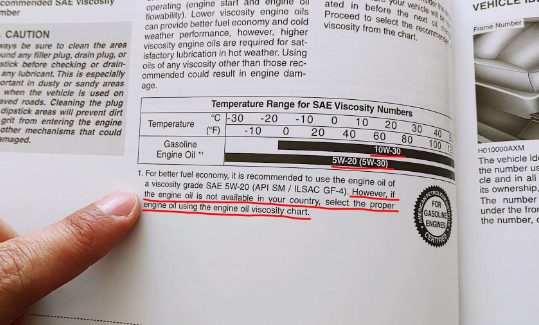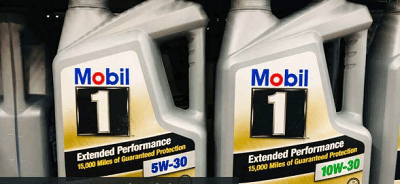10W-30 oilan mix 5W-30 with 10W-30 oil. The two oil viscosities are compatible and can be safely blended together.
When it comes to choosing the right oil for your vehicle, it’s essential to consider the recommended specifications provided by the manufacturer. However, in certain situations where you may not have access to the specific oil grade, mixing compatible viscosities like 5W-30 and 10W-30 can be a temporary solution.
Both oils have similar thickness at operating temperature, making them suitable for mixing without causing any harm to your engine. Just ensure that you don’t mix oils with completely different viscosities or additives to maintain optimal engine performance and longevity.
Keep reading to understand the compatibility of 5W-30 and 10W-30 oil and related considerations.
Understanding Viscosity Grades For Engine Oil
Understanding Viscosity Grades for Engine Oil
Viscosity is a crucial property of engine oil that affects its flow characteristics. It is defined as a measure of a fluid’s resistance to flow, and in the context of engine oil, it determines its ability to lubricate, protect, and cool the engine components.
The viscosity grade is indicated by a number followed by a “W” for winter, such as 5W-30 or 10W-30.

The definition of viscosity refers to how thick or thin the oil is at different temperatures. A lower number before the “W” indicates that the oil is thinner when cold, allowing for easier starting and better engine protection during cold weather.
On the other hand, a higher number after the “W” indicates that the oil retains its viscosity better at higher temperatures, providing improved engine protection.
The importance of viscosity for engine performance cannot be overlooked. Using the wrong viscosity oil can lead to engine damage, poor lubrication, and reduced fuel efficiency. It is crucial to refer to the vehicle manufacturer’s recommended viscosity grade to ensure optimal engine performance and longevity.
Can I Safely Mix 5w-30 With 10w-30?
When it comes to mixing oil grades, it’s important to consider a few factors before doing so. While it may be tempting to mix 5W-30 with 10W-30, it’s crucial to ensure compatibility to prevent any potential consequences.
Firstly, check your vehicle manufacturer’s recommendations. Some vehicles may require a specific oil grade, and mixing different viscosities could lead to poor engine performance.
Secondly, consider the environmental conditions in which the vehicle operates. If you frequently drive in extreme temperatures, mixing oils with different viscosities may not provide adequate lubrication.
If you do decide to mix oil grades, be aware of potential consequences. Mixing incompatible oils can result in reduced lubrication, increased engine wear, and decreased fuel efficiency. It could also affect the performance of certain engine components such as the oil pump.
In conclusion, it’s best to consult with a professional mechanic or refer to your vehicle’s manual before deciding to mix oil grades. Proper maintenance and adhering to the manufacturer’s recommendations will help ensure optimal engine performance and longevity.
The Best Approach To Combining Oil Grades
Combining different oil grades can be a practical solution in certain situations. However, it is important to follow the proper procedures for oil mixing to ensure optimal performance and protection for your engine.
First and foremost, it is crucial to check the manufacturer’s recommendations for your specific vehicle. While some vehicles may have more flexibility in oil grades, others may have strict requirements.
When mixing oils, it is generally recommended to use oils with the same viscosity ratings. 10W-30 have similar viscosity ratingsimilar viscosity ratings, so they can be mixed together without causing any significant issues.
It is also important to consider the compatibility of synthetic and conventional oils. Synthetic oils tend to have better performance and longevity, but they may not mix well with conventional oils. Therefore, if you are planning to mix oil grades, ensure that they are both synthetic or both conventional.
Combining different oil gradesto mix 5W-30 with 10W-30, it is crucial to follow the recommended procedures and ensure compatibility to protect your engine and maintain optimal performance.
Conclusion
Mixing 5W-30 with 10W-30 is generally safe and won’t cause significant engine problems. However, it’s important to consider the manufacturer’s recommendations and understand the potential impacts on your vehicle’s performance. Consulting a professional mechanic or referring to your vehicle’s manual is always the best practice to ensure optimal engine performance and longevity.


Leave a Reply